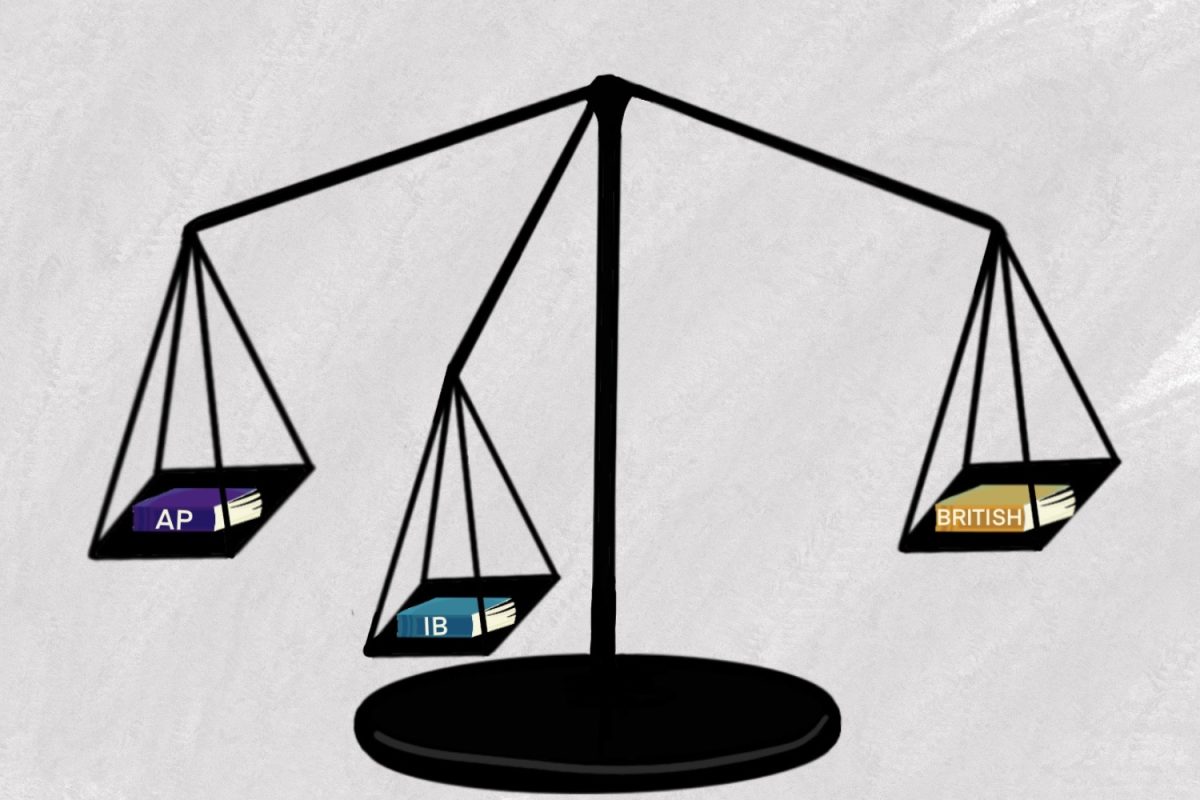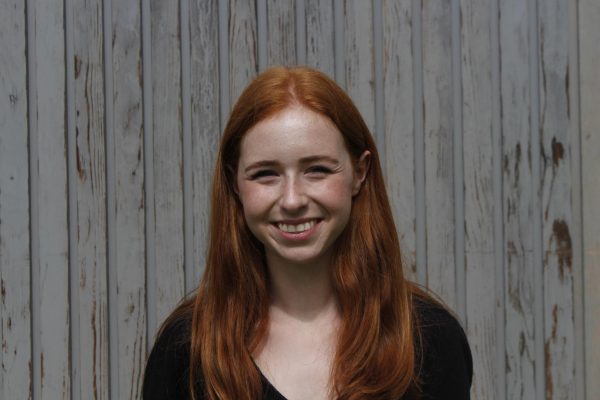Introduction
For University Advisor Joanna Shearer, each education system, whether only slightly or glaringly different, has an impact on the character and values of its students. Shearer said academic curriculums are often based on “both cultural and social beliefs” as well as educators’ opinions on “what is most important for children to learn.”
Echoing Shearer, World Languages Teacher Carlos Alvarez-Santos said the values of an institution can determine the morals of its students.
“Values provided by not only the schools but also the teachers who work in the school, are the key to the education of any young person,” Alvarez-Santos said. “It’s the school and the home life that play the biggest roles in the growing process of a student.”
Additionally, Alvarez Santos said one’s school and family environment shapes the identity of an individual.
“They [school and family values] determine exactly how that person is going to be like in the coming future,” Alvarez Santos said. “You are who you are based on all of the influences that you have had in your life.”
According to Shearer, a large number of students in the school have attended institutions that model the British and International Baccalaureate programs. She said the curriculums each “carve an individual pathway” for the pupils and allow for “many different reflections and experiences.”
Students in the UK school system take a minimum of five General Certificate of Secondary Education exams in Grade 10, according to the British Council, and subsequently take three-to-five A-level classes and their respective exams in Grade 12.
On the contrary, the Advanced Placement system allows students to explore subjects at either a standard or introductory college level, according to World Schools, although the number of classes taken depends on each school’s limitations. Further, the IB program entails six subjects, three of which must be taken to an advanced degree.
Academic differences
Alvarez-Santos, having taught at both AP and British schools, noticed stark contrasts in the priorities of each type of institution.
“ASL is a school that is focused more on the experiences and character of their students,” Alvarez Santos said. “The British school system isn’t as attentive to the students’ emotional needs. It’s focused on the academics as a first focus.”
ASL is a school that is focused more on the experiences and character of their students.
— World Languages Teacher Carlos Alvarez Santos
Additionally, Chloe Cassidy (’26), a student who has studied in both systems, said the British system had a significantly larger workload than ASL.
“They were very focused on GCSEs and constantly working towards that,” Cassidy said. “Here, it’s not as focused on exams and work. We are getting prepared more in general for life.”
Moreover, Shearer said the British curriculum “really locks students in their chosen area” and does not allow for much exploration beyond the limited number of subjects chosen at the age of 15.
Likewise, HS Science Teacher Karen Bonthrone said subject choices in Britain are set with “little to no flexibility,” unlike the American AP system.
“You’ve got that situation where kids have got to know what they want to do so early on,” Bonthrone said. “Here, you’ve got much more flexibility, you get into classes and then you can completely flip in 12th grade if you need to.”
University planning
Despite speculation around the favored system for university admissions, Shearer said each curriculum type adds to a student’s background and is evaluated fairly.
“Everyone is assessed on their own merit and assessed individually,” Shearer said. “Colleges generally do not have a preference because it’s just not the way the applicants are reviewed.”
Furthermore, Shearer said the debate goes beyond a clear cut answer as schools value variety within their student body.
“It’s not just, ‘yes or no’ for the AP and IB in college, each school offers something different and, in reality, universities just want diversity in their community,” Shearer said.
Reflecting on the school’s university acceptance successes, Shearer said the APs the school offers are widely recognized and are a qualification that fully matures its students.
Personal reflections
Cassidy said the relationships between pupils prove dissimilar across the American and British curriculums since the British system doesn’t foster as much of a “close environment” between students.
There is an ethos in British schools where students don’t interact with their teachers outside of class.
— Science Teacher Karen Bonthrone
“There is more a community sense at ASL that can’t be matched by the other systems,” Cassidy said.
As a consequence of the distant relationships, Bonthrone said students in British schools are much more independent in their studies, contributing to a stigma around seeking help.
“There is an ethos in British schools where students don’t interact with their teachers outside of class,” Bonthrone said. “Students can’t come and ask you, or they don’t want to, because it’s a part of the culture not to come and ask.”
Moreover, Bonthrone said the IB system minimizes “social individuality” and cultivates students of “very similar character,” despite the diverse academic pathways offered.
Unlike her previous British curriculum, Cassidy said ASL emphasizes education as a continuous journey and encourages students to learn beyond the school’s walls.
“This school values more what you leave the school with and future experiences in the real world,” Cassidy said. “My British school was much more about getting the grades that you wanted and nothing else.”
Although Bonthrone outlined differences between the British, American and international curriculums, she also said these school values share certain morals that will always hold true.
“They may look different in the school systems, but all schools operate under wanting every student to do the best they can,” Bonthrone said. “No difference in academic subjects or philosophy would change that.”






